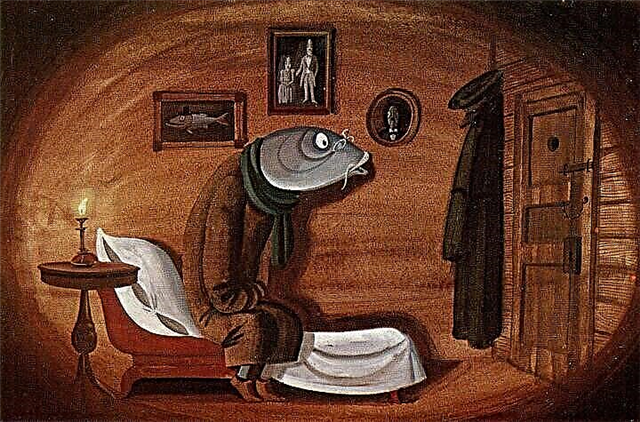Matrang is an artist of the Gazgolder label who has recently become popular. The fame was brought to the performer by the track “Medusa” released at the end of 2017.
Although the genre of the song is usually defined as hip-hop, of course, it is more appropriate to attribute it to the dance pop. From the latest sensational releases, it seems to be related to the track of Feduk and Eldzhey “Rose Wine”: the same direct barrel, the same autotune, and in general the orientation of the compositions is very similar, as well as the scale of popularity that came to the authors after their release . The following comparison may seem completely absurd to readers, but, despite its comic nature, and in many respects thanks to it, it fits into my analytics of these songs very organically. If we talk about the meanings of the texts, the messages sounding in the memorable, falling into the consciousness of the refrain, a comparison comes to mind with the works of the idol of past generations - Igor Nikolaev. Indeed, doesn’t “Rosé wine” in this respect resemble Nikolaev’s “Raspberry Wine”? And the love story of jellyfish and octopus - the story from the song "Dolphin and Mermaid" by the same author? Yes, the words involuntarily pop up in my head: "Everything new is well forgotten old." One way or another, and then I would like to still go on to a more detailed analysis and decoding of Medusa.
Throughout the first couplet, the theme of water distinctly sounds, setting the atmosphere of the song and plunging into it: here there are “steam”, “rain”, and “still water flowing away”; however, in the second couplet it noticeably subsides, and only “bottomless eyes” remain. The relationship of the lyrical heroes - the jellyfish and the octopus - turns out to be rather ambiguous and not entirely clear even to themselves: we hear “revealed yesterday, you are nobody to me today”, then the words “we are friends” - “we are not friends with you” echoed in the chorus. In this regard, Matrang’s, apparently, manages to capture the spirit of the times, corresponding to him the concept of modern relations of young people who, under the pressure of constantly changing social formations and life circumstances, often can’t sort out their own feelings.
Every now and then in the text, the author flirts with vulgar images, although, independently explaining the meaning of his work on social networks, he tries to distance himself from such interpretations as much as possible. For example, in a very mysterious and twofold way (especially in combination with the image of a girl who arrived “for an hour”), the lines “in an octopus jellyfish” sound, “I kill your dirt, it falls to the floor, it remains ... your white gut“, “burn me all night “. Of course, everyone understands everything to the extent of their depravity, and it seems that Matrang gives its listeners the opportunity to determine the purpose of the song themselves: is this a story about pure love, overcoming any circumstances and overwhelming any obstacles, or is it still something vicious and low? I would like to believe that the truth is closer to the first option.












